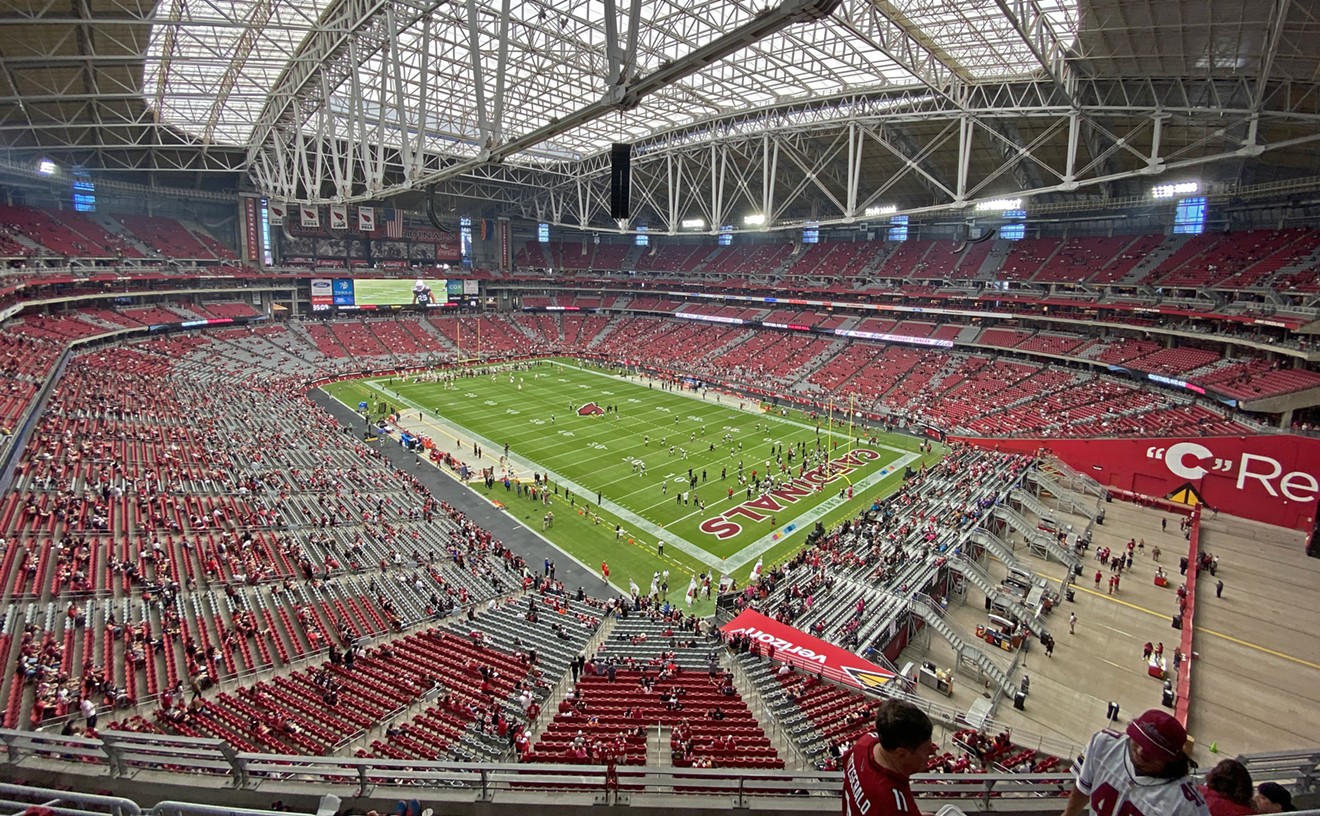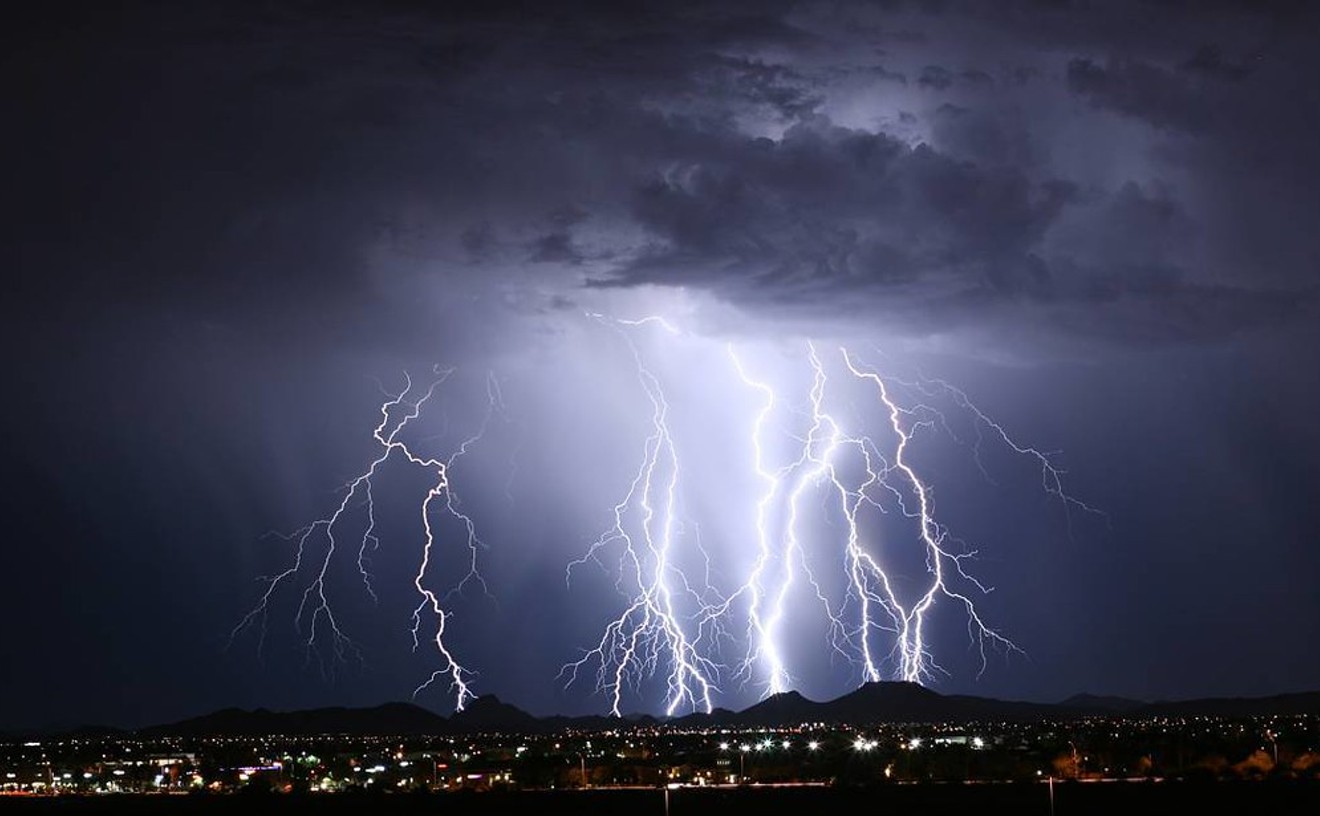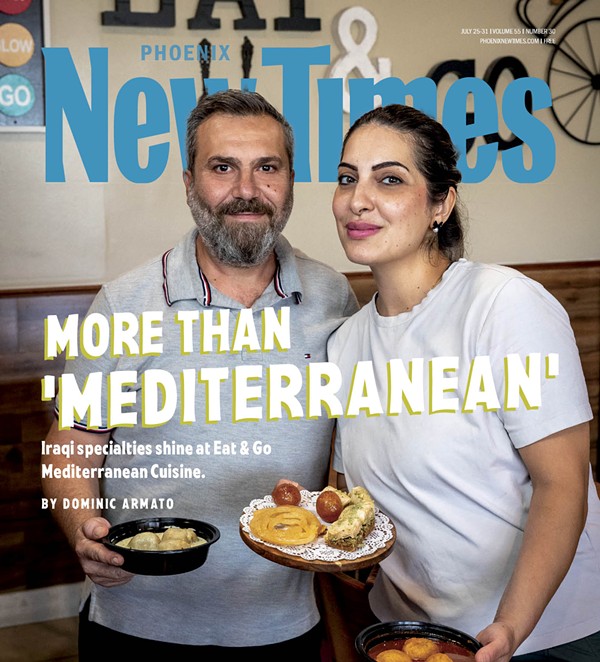It's happened countless times in the sprawling downtown Phoenix encampment where Stephen Johnson sleeps: A police officer drives by and tells everyone to pack up their belongings and leave.
Sometimes, people don't have enough time to pack before the officer circles back and asks for IDs. Often, with shelters at capacity, they have nowhere else to go.
But they have to pick up and move, or they risk getting cited for trespassing, losing their belongings, or in the worst cases, facing arrest.
Johnson is used to the routine by now, and he can usually reason with officers, with whom he's become friendly over time, he said. But he and others sleeping on sidewalks in Phoenix shouldn't have to get used to it, according to a 2018 9th U.S. Circuit Court of Appeals ruling that was upheld last month by the U.S. Supreme Court last month when it declined to hear an appeal. The decision applies to several western states, including Arizona.
That decision, arising from the decade-long case Martin v. Boise, said such behavior by police is cruel and unusual punishment when there are not sufficient shelter beds available.
Yet Phoenix, which has seen an uptick in unsheltered homelessness and a shortage of housing options in recent years, still has not complied, advocates say. That's the issue at the heart of a protest scheduled in downtown Phoenix on Wednesday. Starting just after noon at Margaret T. Hance Park, activist groups and people without housing will gather to demand that the city decriminalize sleeping outside.
After that, they'll hold a press conference and appeal to the City Council at its formal meeting, which is scheduled for 2:30 p.m.
The advocacy group Fund for Empowerment and its Homeless Leadership Project are behind the day's events. Together with other groups, including ACLU of Arizona, Poder in Action, Food Not Bombs, the Mass Liberation Project, the National Lawyers Guild, and the Poor People's Campaign, they issued a letter to Mayor Kate Gallego and Phoenix City Council on Wednesday urging them to make a change by January 29.
"The homeless community members of Phoenix are legitimate constituents of the city of Phoenix and need to be treated as such," said Elizabeth Venable, Fund for Empowerment treasurer.
"People experiencing homelessness deserve our respect, our love, our patience, and our best guidance," said ACLU of Arizona Policy Director Darrell Hill. "Criminalizing homelessness does the opposite. It makes it harder for them to take the necessary steps to end their own homelessness and get their lives back on track."
While some Valley cities — like Tempe, which stopped enforcing its urban camping ordinance — have taken action to comply with the ruling, Venable said, "Phoenix has been kind of intractable."
The case Martin v. Boise began in 2009 when six people who had been homeless in Boise, Idaho, said local rules against camping on public property violated their constitutional protection against cruel and unusual punishment.
A 9th-Circuit panel agreed with the plaintiffs in 2018, saying, "a municipality cannot criminalize such behavior consistently with the Eighth Amendment when no sleeping space is practically available in any shelter.”
"As long as there is no option of sleeping indoors," the court wrote, "the government cannot criminalize indigent, homeless people for sleeping outdoors, on public property, on the false premise they had a choice in the matter."
Boise and other cities affected by the ruling appealed to the Supreme Court, resulting in last month's decision by the High Court to let the ruling stand.
Though Phoenix City Council discussed the need to change its policy in December, it hasn't yet followed through on plans to do so, Venable said.
Historically, Phoenix has used a city ordinance that restricts urban camping in most public places to push homeless people to periodically leave those areas.
Though the city has funneled money into a multipronged effort to help connect unsheltered residents with housing and resources, the program has gotten a slower start than hoped, Phoenix New Times reported last fall.
Meanwhile, the number of people in a situation of unsheltered homelessness in Maricopa County increased in 2019 to over 3,000, according to the county's annual Point-in-Time homeless count. The number of people experiencing homelessness in total in the region increased for the sixth straight year last year, to 6,614.
Part of the problem is a lack of affordable housing, a shortage that has increased in recent years. There's also limited shelter space. Maricopa County data from April 2019 shows a majority of shelter and temporary housing resources were either at capacity or nearly at capacity when the data was last collected.
Mayor Kate Gallego has been a vocal advocate for helping to end homelessness, and at the last formal City Council meeting in December, Councilman Sal DiCiccio emphasized the importance of creating a policy that falls in line with the Boise ruling.
The council agreed on the record that it would go on the agenda for an upcoming executive session meeting.
Venable said she hopes the city leaders will follow through on that commitment, heeding the perspective of the people on the streets who will be affected.
She and the other advocates are also petitioning the city to restructure its policies on dealing with the unattended belongings of the homeless. They want Phoenix to comply with a 2012 9th Circuit ruling, Lavan v. Los Angeles, which ruled that seized belongings from people who are homeless should remain stored and accessible for at least 90 days.
On Tuesday near Central Arizona Shelter Services, the city's biggest shelter — which is often full and turns people down daily — unsheltered homeless Phoenicians gathered to access nearby medical and other services. Tents, tarps, bicycles, and blankets dotted the sidewalks where hundreds camped.
Annette Vasquez, 59, sat on a street corner, barefoot in a ray of afternoon sun.
She was kicked out of CASS for raising her voice in anger when her purse was stolen two years ago, she said, and has lived mostly on the streets ever since.
Though she said police have had less of a presence in recent weeks since the Supreme Court's announcement, she still fears leaving her belongings to go to appointments, and physical pain can limit her movement, making things all the more difficult.
"I'm trying to get back in," she said of the shelter. "It's just so close to everything I need to do. I'm not trying to just sit around and live free. I just fell into the bucket with everybody."
[
{
"name": "Air - MediumRectangle - Inline Content - Mobile Display Size",
"component": "18478561",
"insertPoint": "2",
"requiredCountToDisplay": "2",
"watchElement": ".fdn-content-body",
"astAdList": [
{
"adType": "rectangle",
"displayTargets": "mobile"
}
]
},{
"name": "Editor Picks",
"component": "16759093",
"insertPoint": "4",
"requiredCountToDisplay": "1",
"watchElement": ".fdn-content-body",
"astAdList": [
{
"adType": "rectangle",
"displayTargets": "desktop|tablet"
},{
"adType": "rectangle",
"displayTargets": "desktop|tablet|mobile"
}
]
},{
"name": "Inline Links",
"component": "17980324",
"insertPoint": "8th",
"startingPoint": 8,
"requiredCountToDisplay": "7",
"maxInsertions": 25
},{
"name": "Air - MediumRectangle - Combo - Inline Content",
"component": "16759092",
"insertPoint": "8th",
"startingPoint": 8,
"requiredCountToDisplay": "7",
"maxInsertions": 25,
"watchElement": ".fdn-content-body",
"astAdList": [
{
"adType": "rectangle",
"displayTargets": "desktop|tablet"
},{
"adType": "rectangle",
"displayTargets": "desktop|tablet|mobile"
}
]
},{
"name": "Inline Links",
"component": "17980324",
"insertPoint": "8th",
"startingPoint": 12,
"requiredCountToDisplay": "11",
"maxInsertions": 24
},{
"name": "Air - Leaderboard Tower - Combo - Inline Content",
"component": "16759094",
"insertPoint": "8th",
"startingPoint": 12,
"requiredCountToDisplay": "11",
"maxInsertions": 24,
"watchElement": ".fdn-content-body",
"astAdList": [
{
"adType": "leaderboardInlineContent",
"displayTargets": "desktop|tablet"
},{
"adType": "tower",
"displayTargets": "mobile"
}
]
}
]














